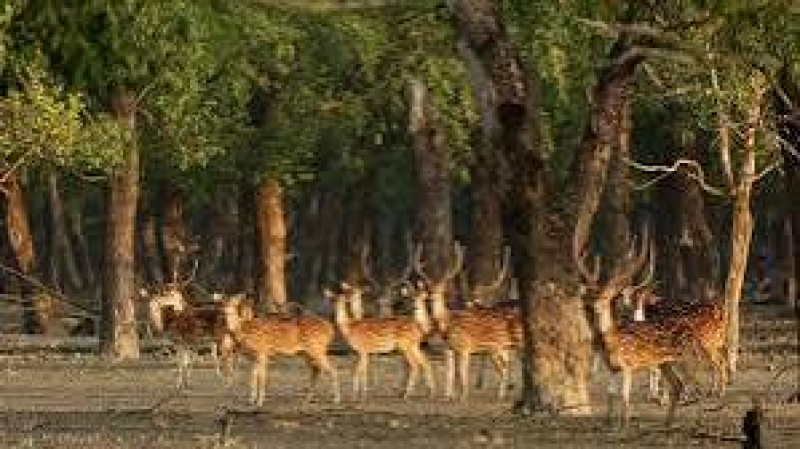- 8 workers burnt in N’gan Akij Cement factory boiler blast |
- Ex-Shibir activist shot dead in Fatikchhari |
- Class X student brutally murdered in capital’s Banasree |
- 'Bodycams' to be used at risky polling centres: IGP Baharul |
- 7,359 people killed in road accidents in 2025: Road Safety Foundation |
Sundarbans Reopening Sunday After 3-Month Closure

The Sundarbans, the largest mangrove forest in Bangladesh, is set to reopen for tourists, fishers, wood cutters and honey collectors on September 1 (Sunday) after three months of closure.
The three-month ban on fishing and tourism in the Sundarbans, from June 1 to August 31, aims to provide a safe breeding environment for fish and wild animals. The movement of all vessels, including boats and fishing trawlers, is prohibited, along with the entry of fishermen and honey collectors. Local and foreign tourists are also barred from entering the forest during this time.
During these three months, most fish release eggs, and it is also the breeding season for many wild animals. Restricting access helps protect biodiversity and wildlife.
The restriction was application for visitors, mainly tourists, as well as people who come to work in the forest for their livelihoods.
Ahead of the reopening, local fishers, tour operators, launches and boat drivers were gearing up to enter the Sundarbans once again.
Munshi Quamruzzaman of Dhamrail village in Paikgachha upazila, said he has prepared his boat and nets to go for fishing.
Aziz Khalifa of Maheshwarpuri in Koyra upazila, said most of the people in Koyra depend on the Sundarbans for their livlihoods.
Local people have to struggle for their livelihood as the government slapped three-month ban every year.
Devid Aslam, a businessman involved in tourism, said they have taken preparations to enter the Sundarbans with tourists as some 2.5 lakh to 3 lakh tourists visit the forest every year.
According to the Forest Department, the Sundarbans currently have 114 royal Bengal tigers, 375 species of wildlife, including 200,000 deer, 334 species of plants, including sundari, 165 species of algae, 13 species of orchids, and 300 species of birds.
In 2019, the Integrated Resource Management Plan (IRMP) recommended closing the Sundarbans' rivers and canals to fishing from July 1 to August 31 annually. In 2021, this restriction was extended to three months, starting June 1, in coordination with the Fisheries Department.
The Sundarbans is home to about 289 species of animals, including 42 species of mammals, 35 species of reptiles, 8 species of amphibians, and 219 species of aquatic animals.

